Tove Jansson: Love and Work
I recently read Fair Play by Tove Jansson.
It’s a work of fiction drawing heavily on Jansson’s later life, shared with her artist partner Tuulikki Pietilä. Together they make art, bicker playfully, obsess over movies, walk in nature, receive visitors. Sometimes they live in the city and sometimes on an unpopulated island.
In the foreword to the edition I read, Ali Smith describes the novel’s main themes as “love and work.” This is correct and it’s a fair reminder that “work” is not the true thing an Escapologist finds objectionable. For example, we’d probably value the flow and the consensual nature of small art production. It’s the submission of employment and the competitive brutality of business that we object to.
Fair Play is stuffed to brim with depictions of love and “the right kind of work.”
There’s also a collage of photographs on the inside covers, which I found relaxing to look at. I present them here along with some Escapological quotes from Fair Play (and some from my follow-up reading).
Some people just shouldn’t be disturbed in their inclinations, whether large or small. A reminder can instantly turn enthusiasm into aversion and spoil everything.
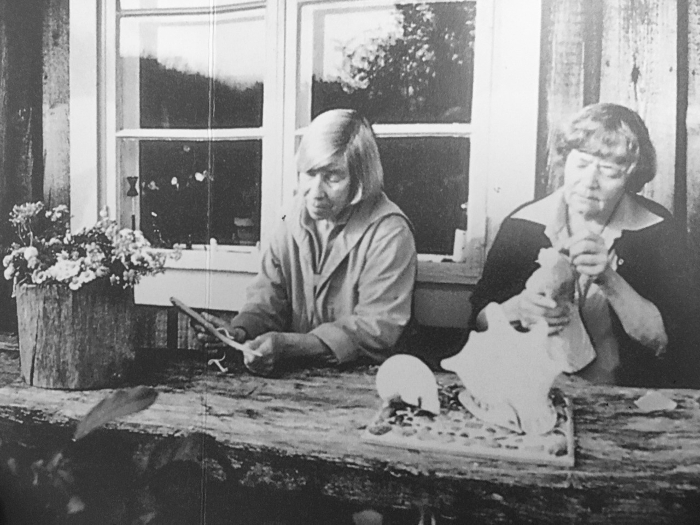
It is simply this: do not tire, never lose interest, never grow indifferent—lose your invaluable curiosity and you let yourself die. It’s as simple as that.

What was it we were so busy with? Work, probably. And falling in love – that takes an awful lot of time.

From AnOther magazine:
when you trace the secret history of [Janssen’s] life, [you discover] an instinct to live by her own rules, from childhood to her death aged 86.
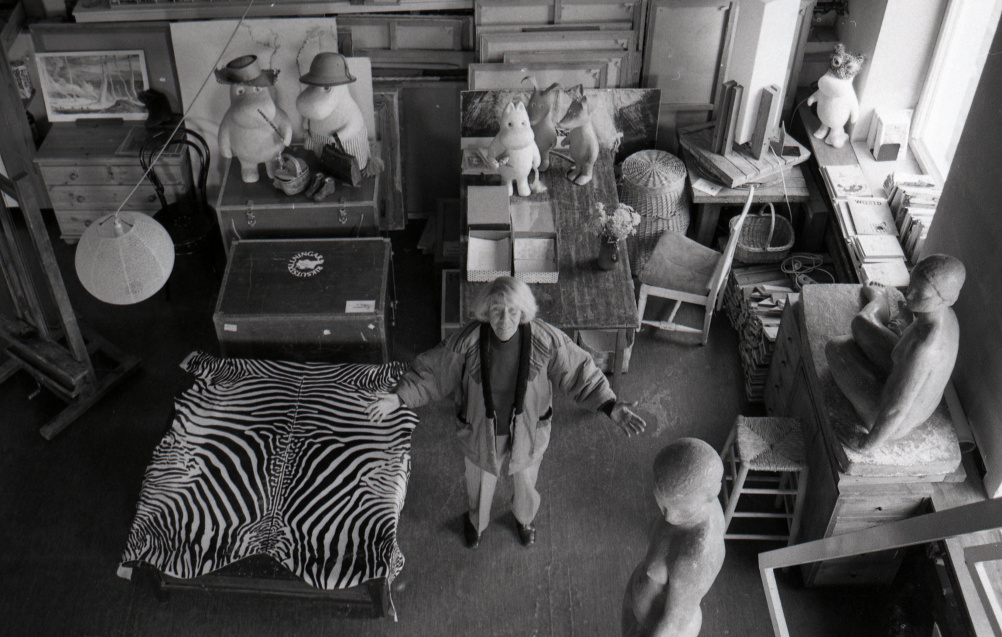
From Jansson’s The Summer Book (1972):
A person can find anything if he takes the time, that is, if he can afford to look. And while he’s looking, he’s free, and he finds things he never expected.
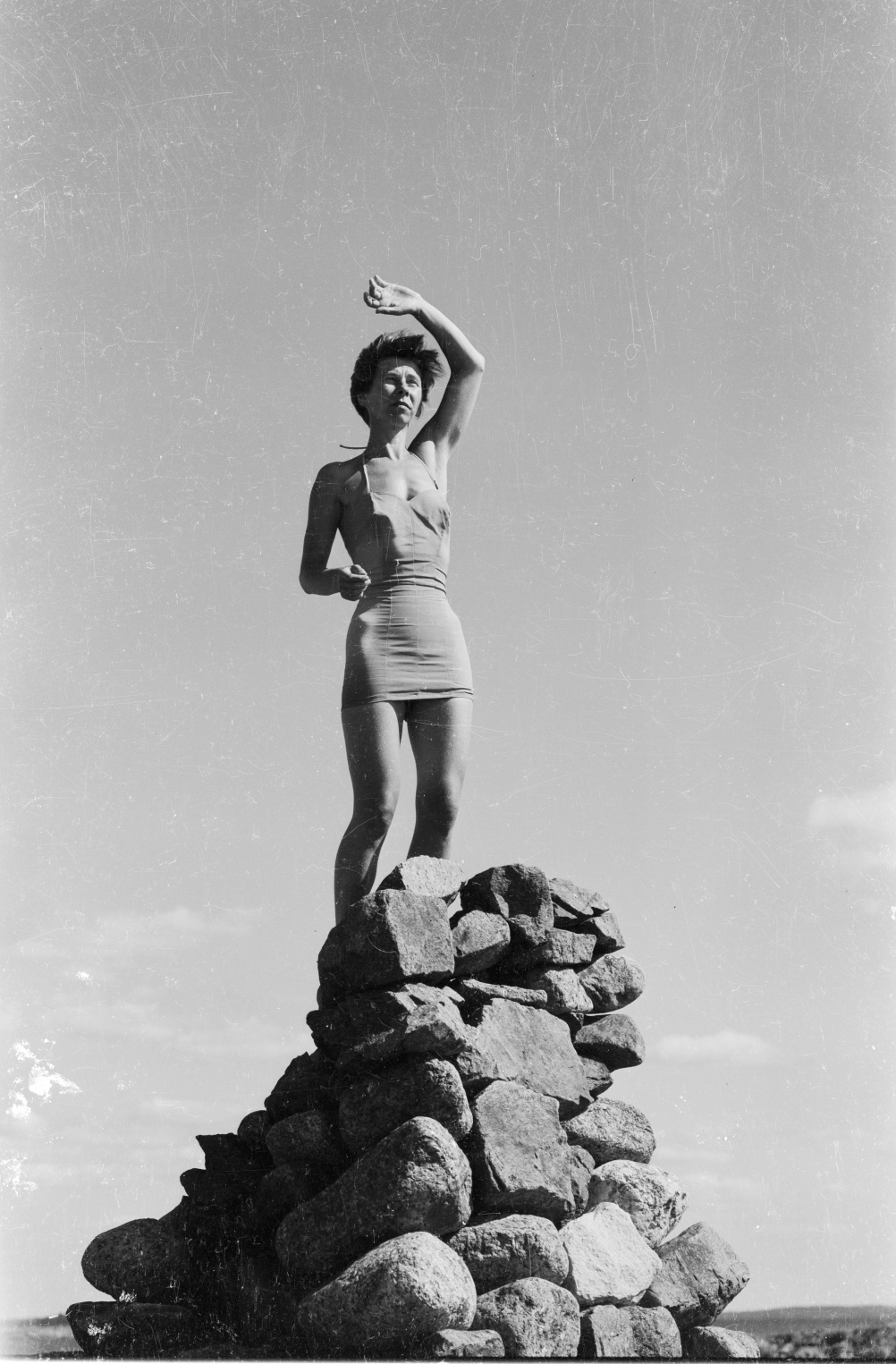
Mari was hardly listening. A daring thought was taking shape in her mind. She began to anticipate a solitude of her own, peaceful and full of possibility. She felt something close to exhilaration, of a kind that people can permit themselves when they are blessed with love.
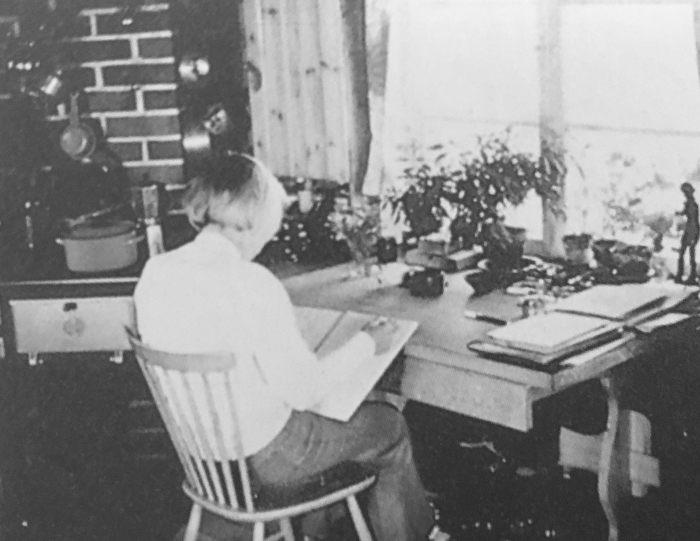
They sat in their separate chairs and waited for Fassbinder, their silence a respectful preparation. They had waited this way for their meetings with Truffaut, Bergman, Visconti, Renoir, Wilder, and all the other honored guests that Jonna had chosen and enthroned–the finest present she could give her friend.
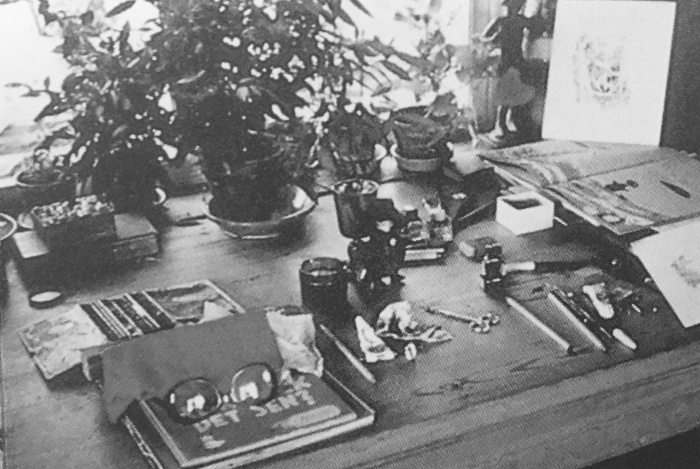
And here’s the obligatory picture of Tove with her most famous creation, the Moomins.

From Finn Family Moomintroll:
Don’t worry. We shall have wonderful dreams. And when we wake up it’ll be spring.




Thankyou for this timely reminder! From anything I’ve come across about Tove Janssen I’ve always instinctively known that would be one of my heroes-you’ve pretty much confirmed it, I’m off to check out my library
Do! Fair Play has been my favourite so far. People seem to treasure The Summer Book but for me it was slightly too melancholy, too much about death than adventure. And the Moomins are always great: Comet in Moominland is strangely bleak but life-affirming and Finn Family Moomintroll is just lovely.
Thank you for all the links. I loved her books as a child, loved reading them to my own children and of course got so much more out of the books as an adult. The last two books published, moominpappa at sea and moominvalley in November are much more philosophical and introspective – much less of the contrasting if peaceful home vs exciting adventures.
I love how popular these Tove posts have been. Isn’t she wonderful? I haven’t read “at sea” or “in November” but I surely will. Thank you for recommending them.